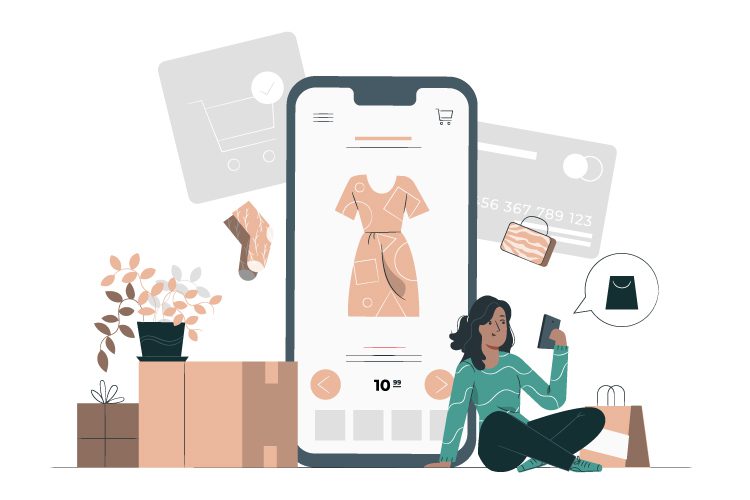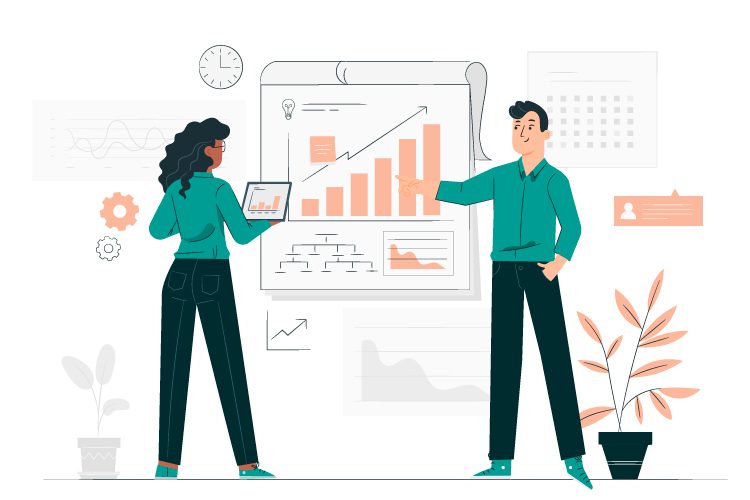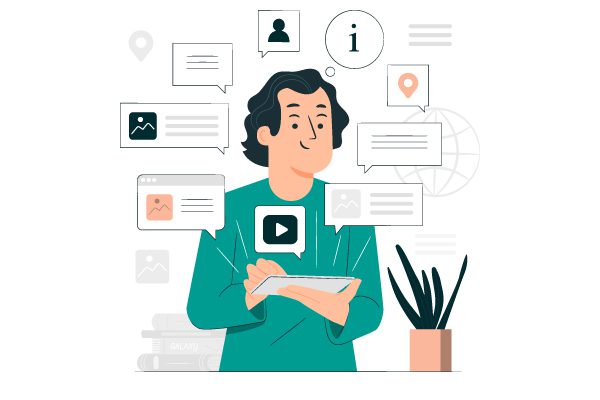When it comes to small businesses, big data and CRM systems can seem like unnecessary expenses. However, these tools can actually be key components in helping a small business succeed. In this blog post, we’ll explore the benefits of big data and a CRM system for small businesses and explain how they can be used to drive growth. We’ll also provide tips on how to choose the right system for your business. So, if you’re on the fence about whether or not to invest in big data or a CRM system, read on! You may be surprised at just how valuable these tools can be.

What is Big Data and CRM Systems
Big data can be defined as the large volume of both structured and unstructured data that are generated from a wide range of sources within an enterprise. This could include anything from social media networks, communication tools like email and instant messaging, collaboration systems like SharePoint or Lync, software logs and reports, or even human resources information.
CRM or Customer Relationship Management is a system designed to consolidate data, streamline processes, and increase the efficiency of sales teams. A CRM system can support things like lead generation, lead tracking, customer interaction management (e.g. email campaigns), account profiling throughout various stages of the buying cycle, and more.
How can they help small business?
Both big data and a CRM system are essential to any business today, but they’re especially important for small businesses. The more information a small business has about their target market, the better decisions they’ll be able to make when it comes to areas like marketing, sales, operations, product development, etc.
Big Data can empower small businesses to make data-driven decisions. Oftentimes, small businesses may rely on gut feelings and assumptions when making business decisions — but these can result in costly mistakes. By collecting and analyzing information to guide them instead, small businesses can see unprecedented growth and stability.
A CRM system is the backbone of any successful sales team and growing a sales team can be one of the most difficult tasks for a small business. A CRM system can help by consolidating all of a company’s customer data into one place, allowing sales reps to have an accurate view of all their interactions with each customer, and providing insights that can help identify and close more sales opportunities.

Advantages of using Big Data vs. a CRM System
There are several advantages of using big data over a CRM system:
- Big data is all about volume, variety, and velocity. This means that a business can collect data from a wide range of sources in order to get a holistic view of their customers and operations.
- Big data can help a business identify patterns and trends that might not be detected using traditional analytics tools.
- Big data solutions are relatively new, which means they can be more customizable to meet your specific needs.
A CRM system has the following advantages over big data:
- A CRM system is specifically about managing customer relationships, while big data is all about gathering information in order to better understand customers and operations.
- A CRM system is a well-established technology, which means there are more options available and it’s been proven to be successful in many organizations.
- A CRM system is typically less expensive than big data solutions.
Disadvantages of using Big Data vs. a CRM System
There are several disadvantages of using big data over a CRM system:
Big data solutions can be more challenging to implement because there’s no standard way of doing things. As with any new technology, it can be expensive and time-consuming to acquire and implement. It can also take awhile to capture enough data to make meaningful observations and predictions. The types of insights you get from big data analysis can also be difficult to understand and act on without help from a data scientist.
A CRM system has the following disadvantages over big data:
A CRM system can be expensive to implement, especially if it’s custom-built for your business. It can be difficult to integrate a CRM system with other applications you may be using in your business. There are also a number of CRM systems on the market and it can be difficult to determine which one is the best for you and your business. Choosing the wrong one can result in a waste of time and money and leave you and your staff with an overall sense of frustration.
Which to choose – what are the key differences between the two, and which would be best for your company’s needs?

While both CRM systems and big data can help a small business grow, there are some key differences between the two. Big Data is all about collecting information from different sources in order to gain insights better understand customers and operations. A CRM system is specifically about managing customer actions and relationships.
Understanding what stage of business your organization is at as well as understanding your organization’s needs and goals will help determine which system fits those needs the best.
For example, if you’re just forming your business, determining which CRM system is best for you and implementing it is your best bet. On the other hand, if you have a well-established business and you’re looking to scale, using big data to develop a growth strategy is your best bet.
Ultimately, the decision on which system to choose comes down to what will work best for your business. Talk to other businesses that are using a CRM system and/or big data to better understand how they’re using it and what benefits they’ve seen from it. This can help you determine which system is best for your company’s needs.
Conclusion
A CRM system and big data are both valuable tools for small businesses, each with its own advantages and disadvantages. It’s important to understand your organization’s specific needs in order to choose the right system for you. Our personal recommendation would be to find the best CRM for you and your business if you do not already have one. Your CRM system should integrate with any other system that captures lead/customer data that you plan to continue using, such as an online calendar tool, an events management system, a POS, or CC processing system, a bookkeeping or invoicing system, etc… Your CRM should also capture and attach all customer interactions and engagement data. Once you’re well established, you’re converting leads into customers and are effectively engaging you can then investigate implementing big data and data analysis to grow and scale your business.

